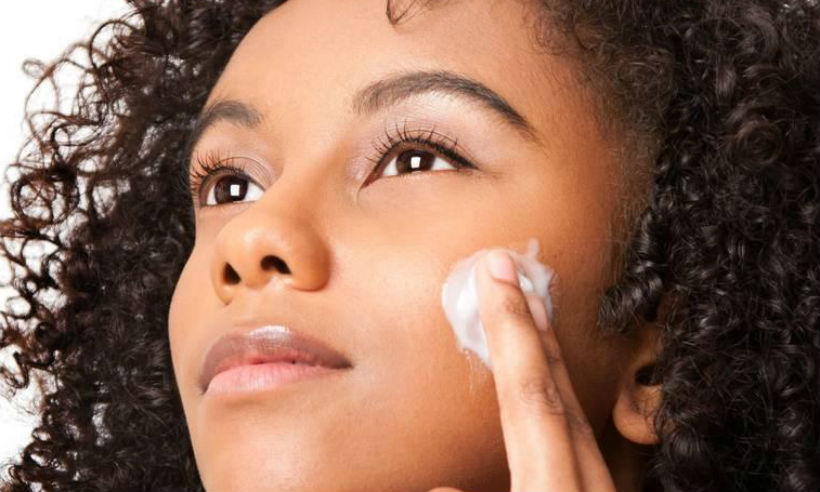Have you ever wondered why your skin feels so dry even after thoroughly moisturizing it? You begin to notice the presence of patchy white spots and flaky dead skin cells. If this is the case, re-moisturizing is only going to save you for a few minutes. The ultimate secret to a glowing skin is exfoliation.
WHAT IS EXFOLIATION?
Exfoliation is the process of removing dead, keratinized skin cells from the outer layer of your skin. It leaves the skin feeling smoother and fresher and therefore, makes it easier for skin products like serums, oils, and lotions to be absorbed into the skin’s surface. We often tend to skip this essential step of our beauty routine forgetting that it is just as important as deep cleansing and moisturizing. Exfoliation is especially of great benefit to those with oily skin. In addition to smoothing, improving skin tone and enhancing skin’s receptiveness to oil-controlling ingredients, exfoliation helps rid oily skin of dulling skin cells to help keep skin supple and clear.
TYPES OF EXFOLIATION
There are two main types of exfoliation: mechanical and chemical – and the method you choose should be determined by your skin type. Mechanical exfoliation uses a tool, such as a brush or sponge, or a scrub to physically remove dead skin cells while chemical exfoliation uses chemicals with an acid or enzyme-based formula such as alpha-hydroxy acid (AHA) such as glycolic acid or beta-hydroxy acid (BHA) such as salicylic acid to gently dissolve dead skin cells.
To prevent skin damage, take note of the following important tips:
- Choose a method that suits your skin type: If you have a dry, sensitive or acne-prone skin, use a mild chemical exfoliator, as mechanical exfoliation may irritate your skin. Oily and thicker skin types can go for stronger chemical treatments or mechanical exfoliation. Avoid chemical or mechanical exfoliation if you have cuts, burns, injuries or acne breakouts.
- Be gentle: If you decide to use a scrub or a chemical exfoliator, gently apply the product in small, circular motions. Do this for a few seconds, and then rinse off with warm water. If you use a sponge, use short light strokes.
- Moisturize: Exfoliation can dry out the skin. Lock in moisture with your favourite moisturizer immediately after exfoliating to keep your skin soft, healthy and hydrated.
- Do not over exfoliate: It is best to exfoliate twice a week. Over-exfoliation can damage the skin. If your pores are severely clogged or you suffer from acne breakouts, you can exfoliate up to three times a week.
BENEFITS OF EXFOLIATION
- It reveals a healthy, glowing skin:
When applying makeup over the dead skin, the surface begins to look uneven. As a result, your skin may appear flaky and patchy and even feel very rough in texture. By gently exfoliating dry skin cells, the skin will appear to feel smoother and look refreshed because it involves eliminating the old skin cells. This will definitely also even out and improve the tone of your skin. Because exfoliating removes dead skin cells as well as dirt and makeup, it makes your skin tone brighter and all glowed up! Your face will get a nice little glow. “In addition to revealing fresh skin cells, exfoliating removes dead cells from pores, making them appear smaller,” says Rachel Nazarian, MD, a Manhattan dermatologist. Makeup also looks better, says Stalina Glot, an aesthetician at Haven Spa in New York City. “It’s like sanding a wall before you paint.” The other major perk of exfoliation is: “Removing the buildup enhances your skin’s ability to absorb everything else, from acne medicine to anti-aging serum,” Dr. Nazarian stated.
- It reduces acne and breakouts:
Exfoliating helps to manage breakouts and acne. Many of us understand the importance of cleansing our skin with anti-breakout products but underestimate exfoliation. It helps unclog your pores and keep your skin clean, which in turn prevents you from getting acne. This is because clogged pores trap body oils under the surface of the skin, which leads to acne breakouts. A deep exfoliation will help unclog your pores from excess oil. It is important to consider that breakouts and acne are not only caused by external factors such as makeup and dirt. Therefore, if the excess oil and dirt is removed from the root of the cause, the number of breakouts will most likely reduce. A number of other factors can also cause acne problems. For instance, hormones are often major determinants of the health of the skin. Unhealthy diet, as well as stress, can also cause an increase in acne and breakouts which can be really unappealing. Regular healthy eating and detoxification can help in eliminating acne.
- Exfoliation fights the aging process:
Exfoliating gives you a more radiant, youthful look. Old skin cells tend to exaggerate the appearance of lines and wrinkles. Although, the skin naturally sheds dead cells (a process known as desquamation), its ability to do it slows down as we get older. Exfoliating can aid the process and hide some of the evidence that we are getting older. Also, when you apply makeup over dead skin cells, the makeup will not blend into the surface of the skin properly. It will only sit on top and appear in layers. By removing dead skin cells, wrinkles and lines are less-exaggerated. Exfoliating combats or at least hides it for a longer period. Help your skin age more gracefully by exfoliating on a regular basis.
- Allows for better absorption of skin care products:
Spending a lot of money on expensive skin care products and not benefiting from them can be really upsetting. We all have experienced this at some point in our beautiful journey. This is because we have layers of dead skin piled up. If the pores are clogged, your skincare products will not be able to successfully penetrate the deeper layers of your skin and provide your skin with the much-needed nourishment.
Without exfoliation, all other steps in your beauty and skincare routine will not be as effective as they ought to be. Don’t forget to exfoliate!
By Adebola ADUWO
(Bsc. Human Physiology)




